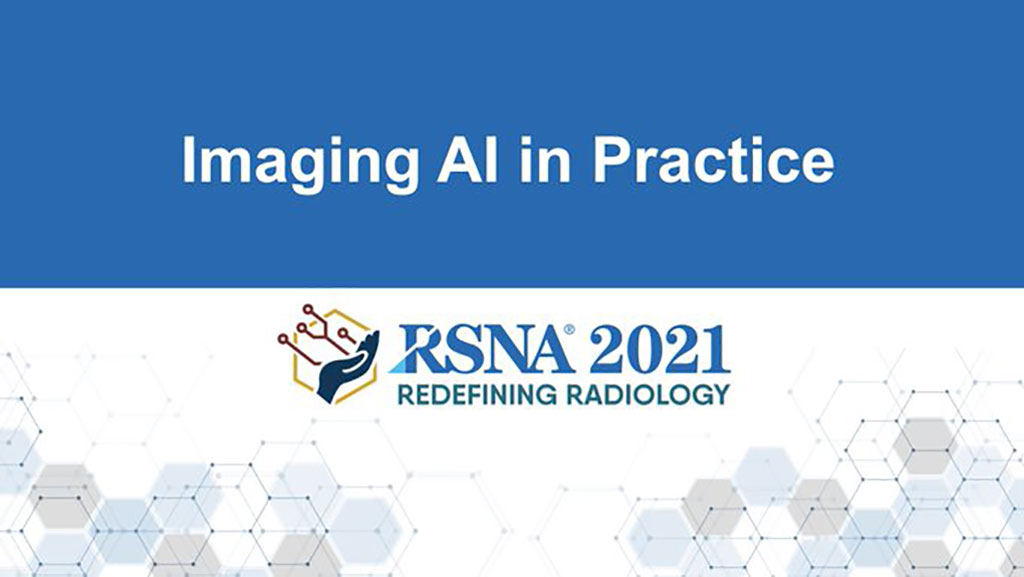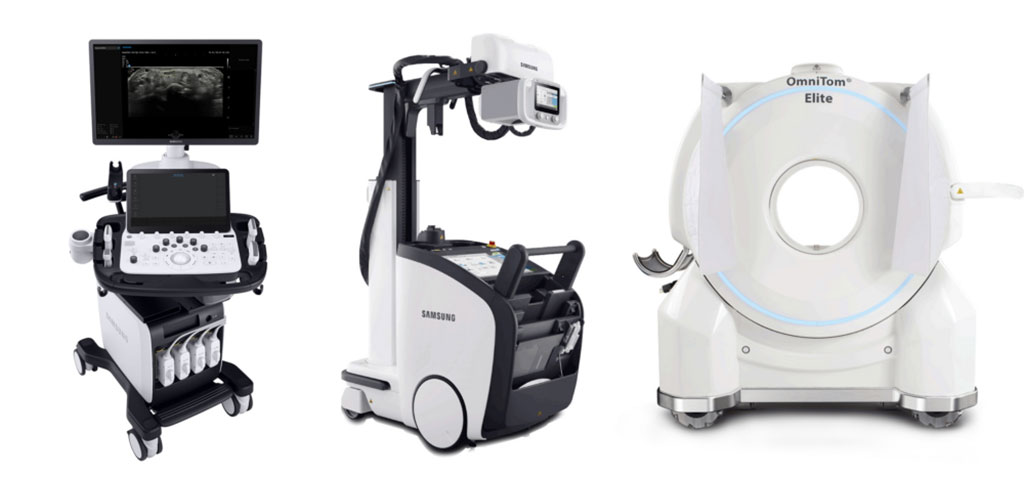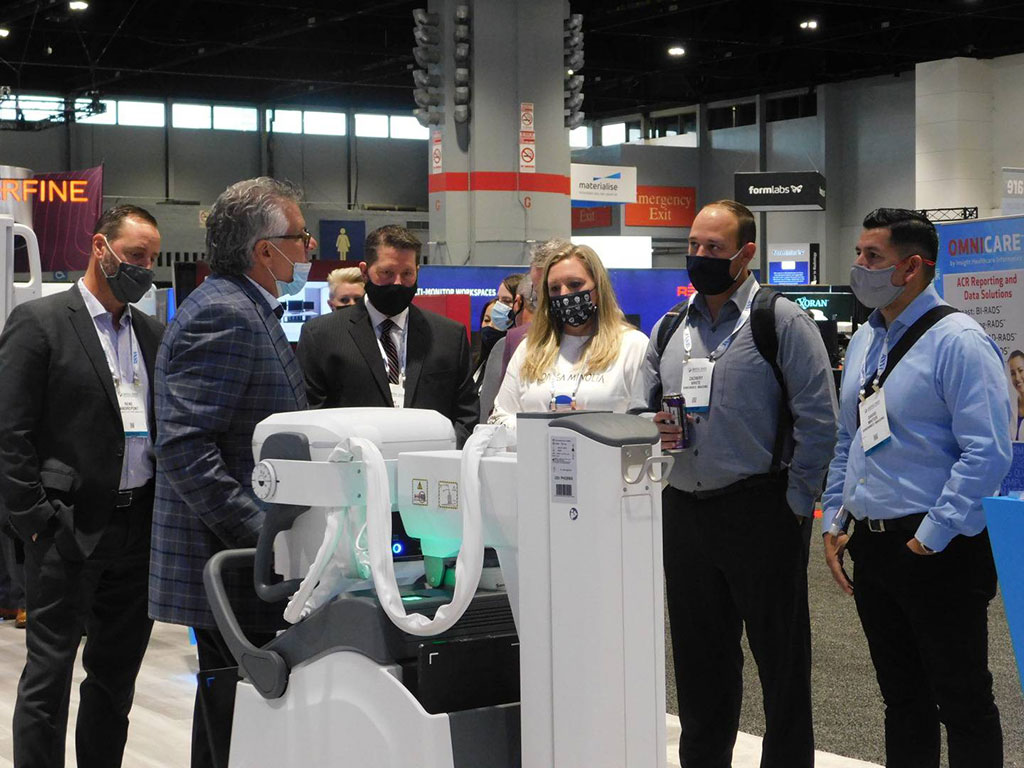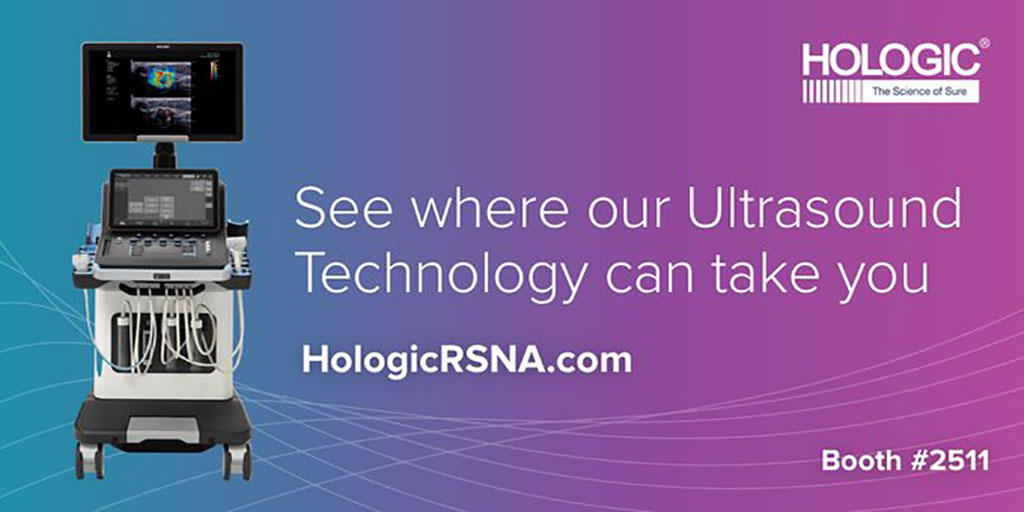RSNA 2021 Artificial Intelligence (AI) Showcase Highlights Potential for AI in Medical Imaging
Posted on 29 Nov 2021
RSNA 2021 showcased a variety of artificial intelligence (AI) and 3D printing products and services that introduced the latest technologies and clinical applications that are guiding radiology into a new era of patient care.
Attendees looking to understand how AI is shaping diagnosis and workflow and impacting patient care visited the AI Showcase featuring more than 100 companies offering the opportunity to see the possibilities of AI firsthand. The AI Showcase was sponsored by AIRS Medical, annalise.ai and neurophet. The RSNA AI Theater offered presentations on AI solutions that are fueling the future of imaging. Each day in the AI Theater, RSNA offered sessions highlighting the Society’s leadership in AI, including presentations about the new RSNA Imaging AI Certificate program, submitting content to Radiology: Artificial Intelligence, participating in the AI Challenges, and contributing data to Medical Imaging and Data Resource Center (MIDRC). Additionally, The AI Challenge award winners were recognized in the AI Showcase Theater. This year’s challenges were the SIIMFISABIO-RSNA COVID-19 Detection Challenge and the RSNA-ASNR-MICCAI BraTS 2021 Challenge. Winners presented their methods and results during the recognition program.

This year, the Imaging AI in Practice Demonstration was enhanced and presented live to showcase the new AI technologies and integration standards needed to embed AI into the diagnostic radiology workflow. This multi-vendor interoperability exhibit used real-world clinical scenarios and imaging studies to demonstrate AI tools and health information technology standards in action. The demonstration covered the radiology workflow, including imaging examination ordering, acquisition protocoling, image interpretation with AI clinical decision support at the point of care, reporting and incidental finding follow-up. The informatics integration standards used in the demonstration included DICOM (Digital Imaging and Communications in Medicine), FHIR HL7 (Fast Healthcare Interoperability Resource, Health Level 7), the IHE (Integrating the Healthcare Enterprise) framework, CDE (Common Data Elements) reporting and others. The Imaging AI in Practice Demonstration was a collaborative effort between industry partners, radiologists and imaging informaticists. A total of 22 vendors demonstrated 32 live individual applications.
Exhibitors in the dedicated 3D Printing and Mixed Reality Showcase featured the latest products in 3D printing, advanced visualization, holography and virtual reality. The critical role that radiology plays in creating the images used to develop models to assist in patient care and education were evident in presentations and hands-on activities. Attendees interested in deepening their understanding of AI applications visited the RSNA AI Deep Learning Lab, located in the Learning Center. The Lab featured 14 unique sessions developed by RSNA members covering a range of AI topics and skill levels, including several beginner options. Many of the sessions employed a combination of lecture and hands-on activities. Sessions were held Sunday through Thursday. Attendees brought their own devices for hands-on activities and to explore new tools, resources and topics in AI.














